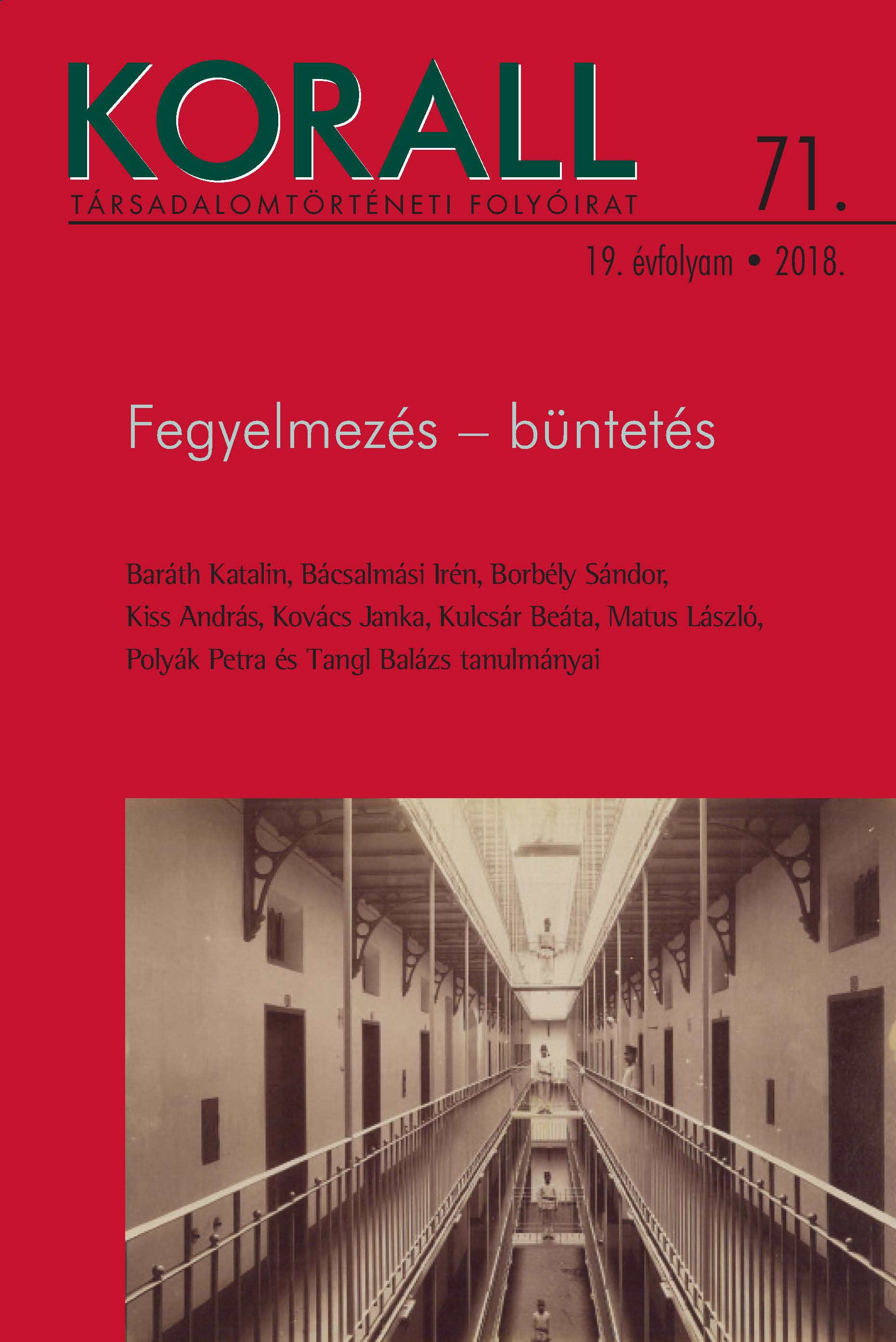Egyetem és fegyelem. Szempontok a hallgatók 1956 előtti magatartásának megítéléséhez
University and Discipline. Aspects of Judging the Behaviour of University Students before 1956
Author(s): Petra PolyákSubject(s): Local History / Microhistory, Political history, Social history, Post-War period (1950 - 1989)
Published by: KORALL Társadalomtörténeti Egyesület
Keywords: history of communism;hungary;higher educatio
Summary/Abstract: The party state’s economic and social aims, based on the Marxist–Leninist ideology, significantly affected the definition of the types of behaviours considered insubordinate, the means of sanctions, as well as the operation of the authorities dedicated to enforce them. In the re- and over-politicised atmosphere of universities and colleges (much like that of the rest of society), actions such as asking inappropriate questions, cheating at exams, even simple truancy, were liable to gain unfavourable political charge, which were organised along the easily recognisable labels of current politics and ideology – “reactionary,” “clerical,” “kulak,” “right-wing tendencies” – affixed upon the accused students. The documentation of the disciplinary procedures, however, are informative not only about the zeal to create and expose the enemy, but also about the accused students’ motivation behind their actions.While Hungarian historiography studies the “anti-regime” behaviours (or those labelled as such) of higher education students and responses of the authorities mostly in the context of the 1956 Hungarian Revolution, German higher education research assumes a more nuanced and in-depth approach to the same topic. The toolkit developed to instigate regime-friendly behaviour, as well as the forms of repression exerted upon both students and educators are both of central importance in studies of East German higher education history and monographs published on institutional histories. Their approach is largely determined by the methodology and terminology developed through decades of research in the field of East German social resistance (Opposition und Widerstand). While this approach rightly stresses the opportunities for individual action and the limitations of attempts of total social control, it mainly focuses on finding confrontational contacts which means that it is not entirely sufficient for the exploration of the multi-layered relational web between authorities and students in itself. As the present examination of the pre-1956 behaviour of university students does not seek evidence for student resistance, the chosen approach – while utilising the methodological considerations and terminology of opposition research – attempts to synchronise it with the concept of Eigen-Sinn (c. self-will), which has a stronger hermeneutic power in exploring the relationship between individual and authority. The present analysis of the 1955 disciplinary action against the students of the Russian department at the University of Szeged, thus, merges the theoretical and methodological approaches of both opposition research and Alltagsgeschichte.
Journal: Korall - Társadalomtörténeti folyóirat
- Issue Year: 2018
- Issue No: 71
- Page Range: 175-196
- Page Count: 22
- Language: Hungarian

